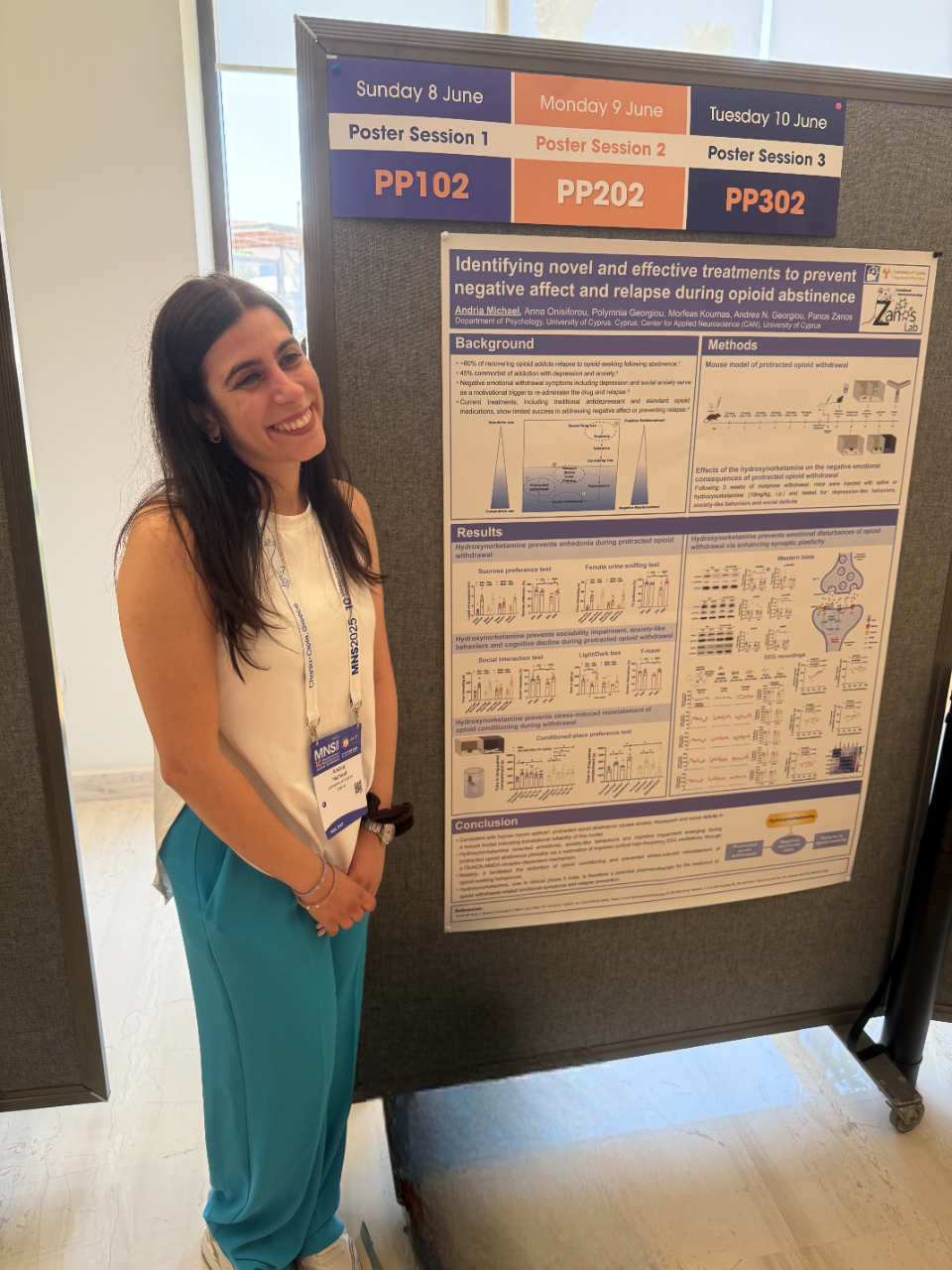
Dr. Michael (Marie Curie fellow from our lab) presented new research at the Mediterranean Neuroscience Society Conference in Crete, showcasing our latest findings on how a ketamine metabolite could help treat opioid addiction.
Her poster focused on (2R,6R)-hydroxynorketamine (HNK), a ketamine metabolite, and its effects on opioid addiction-related behaviors in mice. The research tackled one of the biggest challenges in treating opioid use disorder: the negative emotional states and high relapse rates during abstinence that current treatments struggle to address.
The study demonstrated that HNK could reverse conditioning to morphine in stress-susceptible mice, prevent negative withdrawal responses, and alleviate acute withdrawal symptoms. HNK also helped reverse anhedonia, anxiety, and cognitive problems during long-term abstinence by restoring impaired brain wave patterns through NMDA receptor mechanisms. Additionally, it facilitated faster extinction of opioid conditioning, prevented stress-induced relapse, and reduced morphine consumption in previously exposed mice.
What makes this research particularly promising is that HNK is already in Phase II clinical trials, meaning these findings could lead to new treatments faster than developing entirely new drugs. Given the ongoing opioid crisis, repurposing existing medications could be crucial for people struggling with addiction.
This research represents exactly what our translational neuropharmacology lab is about – taking fundamental brain discoveries and turning them into real solutions for those who need them most.
